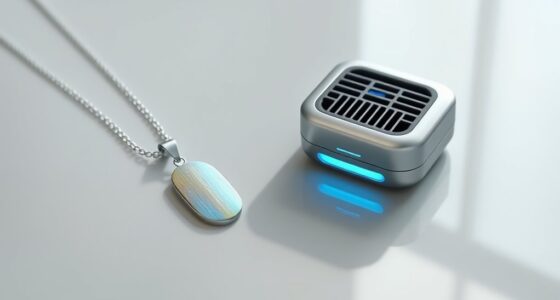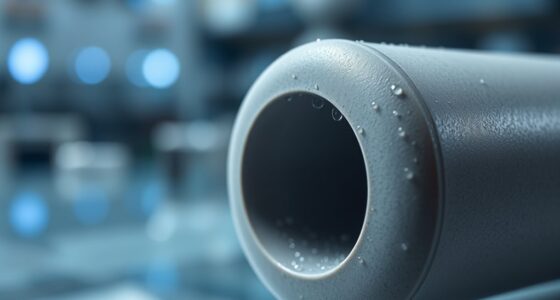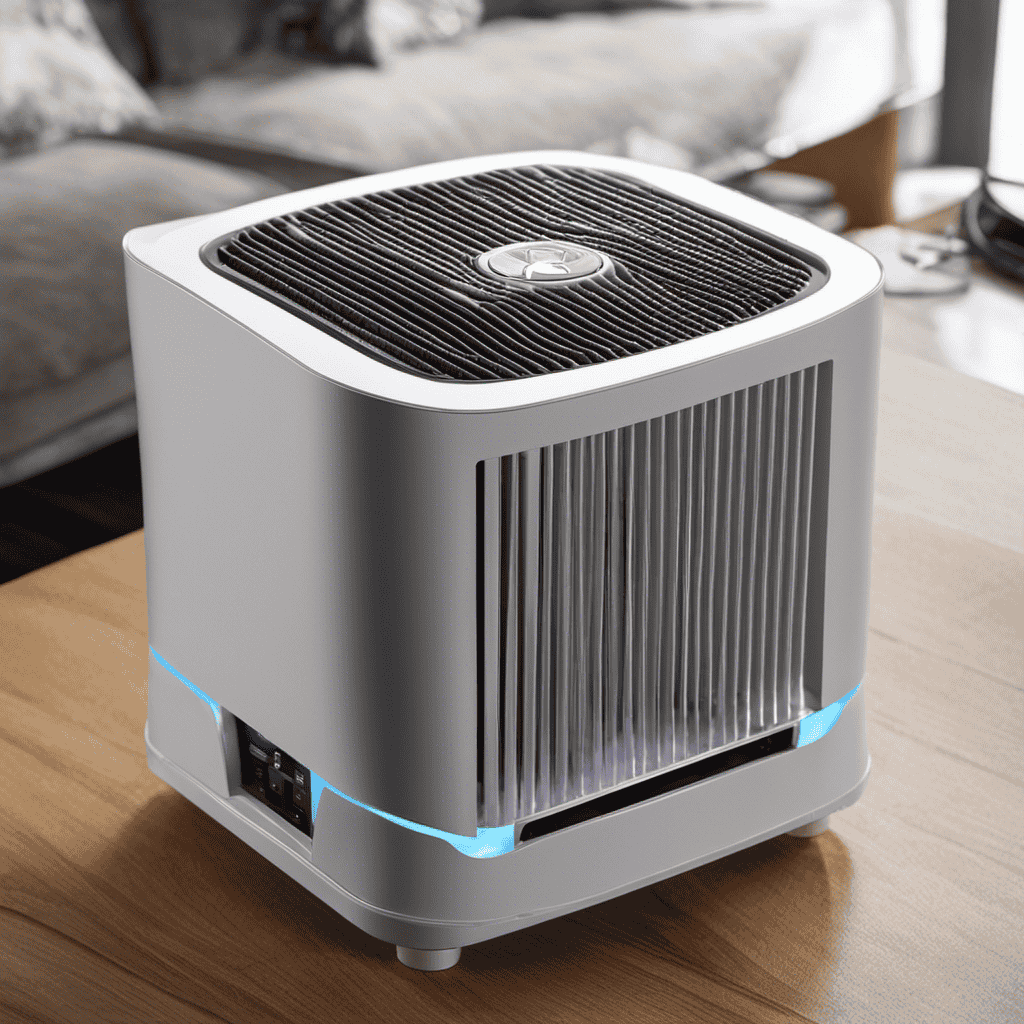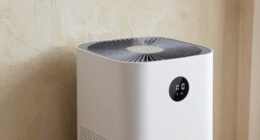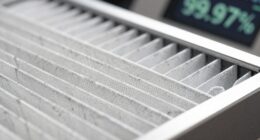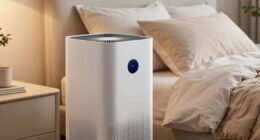Choosing between washable and disposable filters depends on your priorities. Washable filters save money long-term and are eco-friendly because you can reuse them after cleaning. Disposable filters, though they cost less upfront, need regular replacement, which adds up over time. If you want lower maintenance and better filtration efficiency, disposables might suit you. However, if sustainability and convenience matter most, washable filters could be the better option. Explore further to find out which matches your needs best.
Key Takeaways
- Washable filters are eco-friendly and reduce waste, while disposable filters are easier to replace but generate more landfill waste.
- Disposable filters often provide superior initial filtration but require frequent replacements, increasing long-term costs.
- Washable filters cost more upfront but save money over time through reuse and longer lifespan.
- Disposable filters offer convenience with straightforward replacement, whereas washable filters require regular cleaning maintenance.
- The best choice depends on your budget, maintenance preferences, and environmental considerations.
Cost and Long-Term Savings
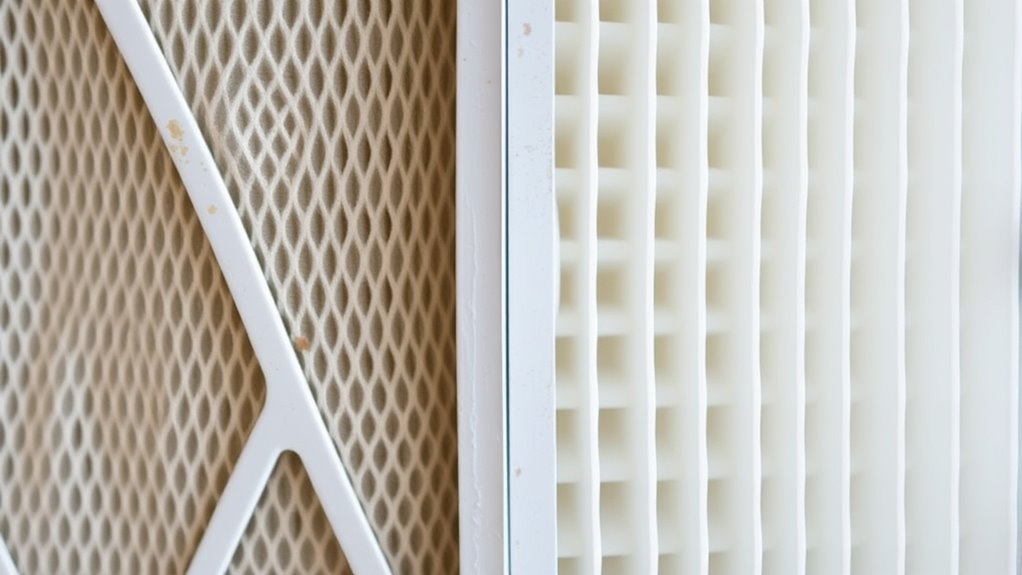
While high-quality filters may cost more upfront, they often save you money in the long run by lasting longer and requiring fewer replacements. A thorough cost comparison shows that investing in durable filters reduces ongoing expenses, as you won’t need to buy replacements as frequently. Disposable filters may seem cheaper initially, but their shorter lifespan means you’ll spend more over time. Additionally, higher-quality filters often maintain better airflow and filtration efficiency, which can prolong the lifespan of your air purifier. By choosing a filter with a higher initial cost, you’re making a smart move toward long-term savings. Moreover, filter durability can significantly impact the overall efficiency and maintenance costs of your air purifier. Choosing filters made from premium materials can further enhance their lifespan and performance. Regular maintenance and proper filter selection can optimize your air purifier’s performance and efficiency, ultimately saving you money. Ultimately, the upfront investment pays off by lowering replacement costs and ensuring your air purifier works effectively for years to come. Moreover, long-term savings strategies can help you make informed decisions about your home maintenance investments.
Maintenance and Convenience
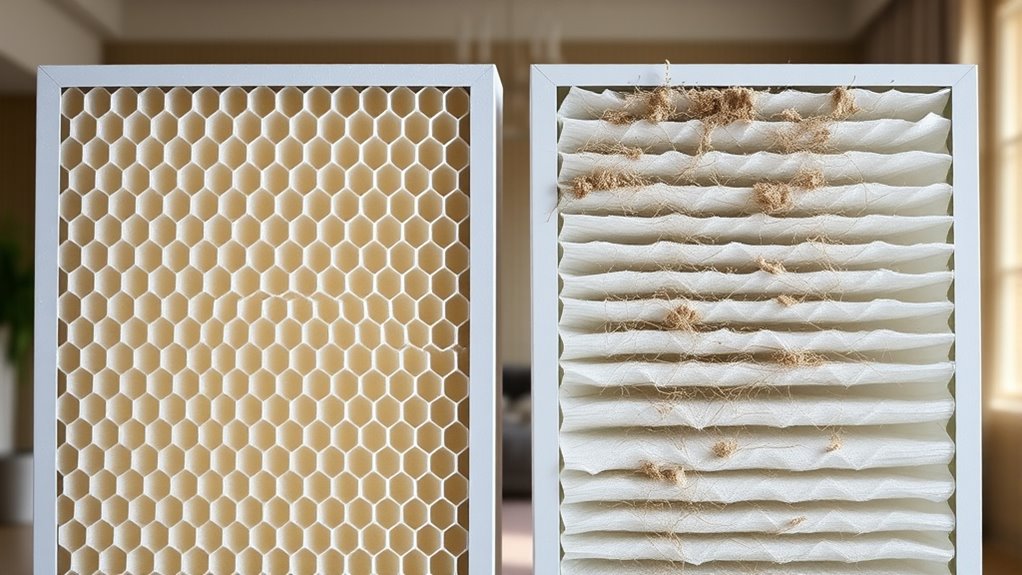
Maintenance and convenience play an essential role in your overall experience with air purifier filters. With washable filters, cleaning ease is a big advantage—you can rinse and reuse them regularly, often making replacement frequency less frequent. This saves you time and effort, as you won’t need to buy new filters as often. Proper maintenance ensures your air purifier functions optimally and extends the lifespan of your filters. Regular cleaning can prevent clogging, which helps maintain air quality and device efficiency. Disposable filters, on the other hand, require you to replace them on a set schedule, which can be more straightforward but less flexible. Consider how often you’re willing to perform maintenance; washable filters demand regular cleaning, while disposables simply need periodic replacement. Your lifestyle and preferences will influence which option feels more convenient. Ultimately, choosing a filter that aligns with your maintenance routine can make your air purifier experience more hassle-free and efficient.
Filtration Efficiency and Performance
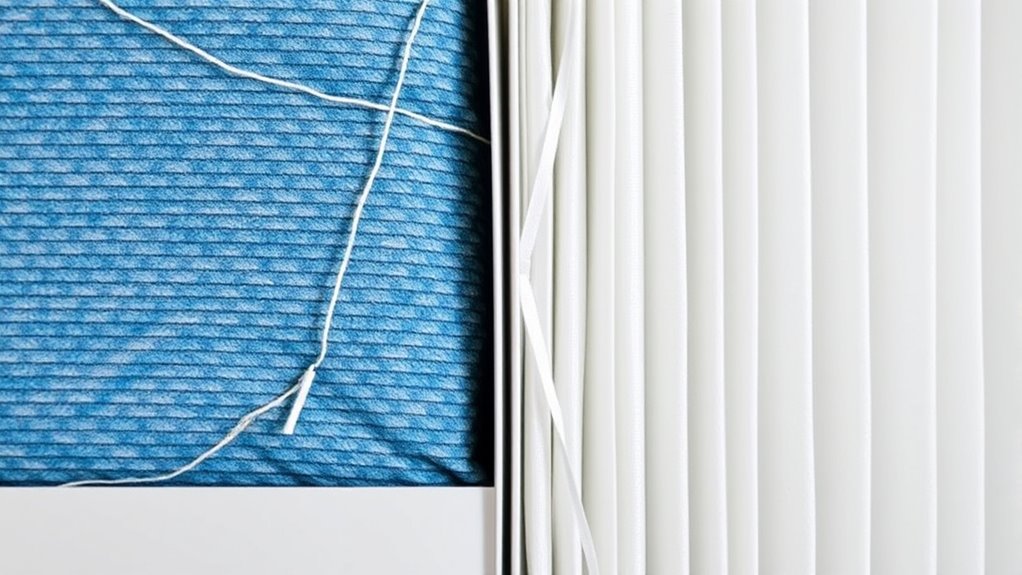
Filtration efficiency and performance are crucial factors when selecting an air purifier filter, as they directly impact the quality of the air you breathe. Higher efficiency means better allergen removal and cleaner air. Washable filters often have a shorter filter lifespan but can be cleaned for continued use, maintaining their performance longer. Disposable filters typically offer superior allergen removal initially but need replacement more frequently. Additionally, the effectiveness of filters can be enhanced through multi-functionality features like UV light or ionization. Understanding performance tuning principles can help optimize your air purifier’s operation and longevity, especially when considering filter maintenance practices to ensure consistent air quality. Employing proper filter replacement schedules is essential to maintain optimal filtration efficiency and prevent performance decline over time.
Environmental Impact and Waste Reduction
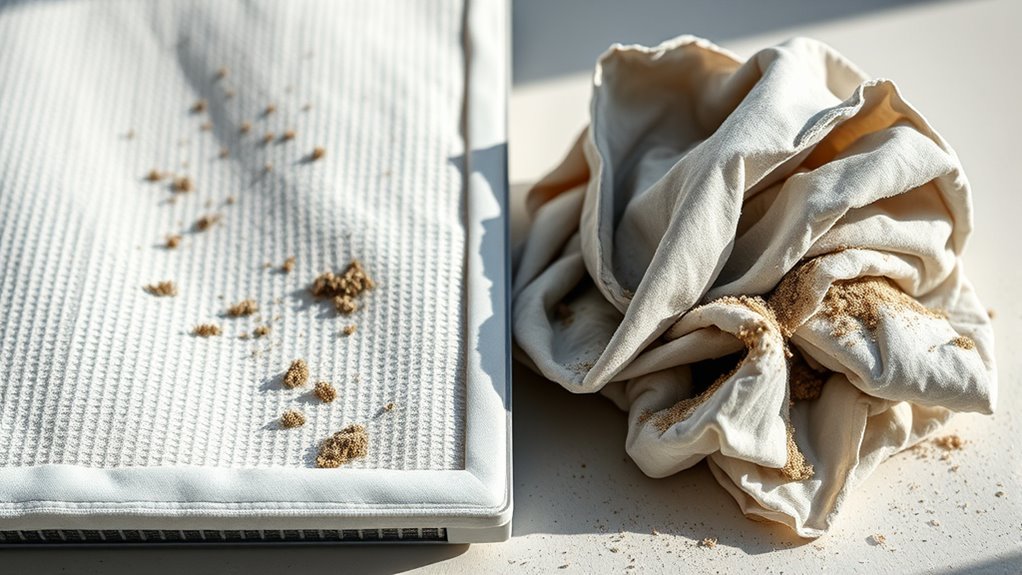
Choosing the right air purifier filters can substantially reduce your environmental footprint. Washable filters generate less waste because you reuse them, lowering recyclability concerns and reducing landfill contributions. In contrast, disposable filters often end up as waste after a few months, adding to waste management strategies that strain landfills and waste processing systems. By opting for washable filters, you minimize the need for frequent disposal, supporting sustainability goals. If you prefer disposables, look for options made from recyclable materials to ease waste management. Overall, your choice impacts the environment—washes less often, produces less waste, and promotes eco-friendly practices. Being mindful of recyclability concerns and waste reduction helps you contribute positively to environmental conservation efforts. Regular checks on filters can also help prevent unnecessary replacements and improve the efficiency of your air purifier, which aligns with the importance of cost-effective maintenance. Additionally, considering filter lifespan can help maximize the benefits of your choice and reduce environmental impact. Choosing filters with longer durability can further enhance sustainability by decreasing replacement frequency.
Compatibility and Suitability for Different Needs

Selecting the right filter depends on your specific needs and the environment where you’ll use your air purifier. If you suffer from allergies, a filter designed for allergy relief may be essential, as it can trap smaller particles like pollen and pet dander. Washable filters are suitable if you prefer a sustainable option and don’t mind regular cleaning, but they might require more frequent filter replacement to maintain effectiveness. Disposable filters often provide more consistent filtration and are easier to replace, making them ideal for environments with high pollutant levels or allergy concerns. Consider your allergies, maintenance preferences, and how often you want to replace filters to determine which type best suits your needs. Proper compatibility ensures excellent air quality and effective filter performance.
Frequently Asked Questions
Which Filter Type Is Quieter During Operation?
When comparing noise levels during operation, the type of filter can affect the operation sound. Generally, washable filters tend to produce quieter operation because they often have a lower airflow restriction, reducing noise. Disposable filters might create slightly more noise as they can become clogged more quickly, increasing the operation sound. So, if you want a quieter air purifier, washable filters are typically the better choice for minimizing noise levels.
Are Washable Filters More Prone to Mold Growth?
Like a sponge soaking up water, washable filters can trap moisture, making them more prone to mold growth. You’re more susceptible to mold when you neglect proper cleaning maintenance, as damp filters create the perfect environment. Regularly cleaning and thoroughly drying your washable filter reduces mold susceptibility. If you don’t stay on top of maintenance, mold can develop, impacting air quality and potentially causing health issues.
How Often Should I Replace Disposable Filters?
You should replace disposable filters based on your air purifier’s filter maintenance guidelines, typically every 1 to 3 months. Regular replacement guarantees peak air quality and prevents buildup of dust, allergens, and pollutants. Keep an eye on signs like reduced airflow or increased odors, which indicate it’s time for a new filter. Following the recommended replacement frequency helps your purifier work efficiently and extends its lifespan.
Do Washable Filters Retain Their Effectiveness Over Time?
Did you know washable filters can last up to five years with proper filter maintenance? They do retain their effectiveness over time, but longevity concerns exist if you don’t clean them regularly. Dirt and debris can clog the filter, reducing airflow and filtration efficiency. To keep your air purifier working well, clean your washable filter frequently and replace it when it shows signs of wear or damage.
Can Both Filter Types Remove All Airborne Pollutants?
Both filter types can remove many airborne pollutants, but neither captures all pollutant particles or allergens. You’ll find that disposable filters often excel at allergen filtration and pollutant particle removal because they’re replaced regularly, while washable filters may lose effectiveness over time. To maximize air quality, choose a filter suited to your needs and replace or clean it as recommended for ideal pollutant particle removal and allergen filtration.
Conclusion
Ultimately, choosing between washable and disposable filters depends on your priorities. If you value savings and eco-friendliness, washable filters offer durability and waste reduction. If convenience and quick replacement matter most, disposables provide simplicity and consistent performance. Consider your needs, your lifestyle, and your budget. By weighing these factors, you can make a choice that’s easy to maintain, cost-effective, and environmentally responsible—helping you breathe cleaner air today and for years to come.


